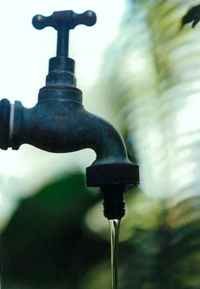Campaigners against water charges in the North are preparing for action as the Executive parties hint they might renege on pledges made before the last election.
A consultation document from Stormont in January made three mentions of water changes as a possible means of raising revenue. None of the mainstream parties has intervened to rule the possibility out.
In response, Communities Against the Water Tax (CAWT) has begun organising again.
The proposal for water charges came originally from the Northern Ireland Office under Direct Rule. Westminster wanted the charges in from 2006 – but backed down in face of a mass refusal to pay. The DUP, Sinn Fein, the Ulster Unionists and the SDLP all promised that the idea would be dumped once the Assembly was up and running and they were in control.
Now they are retreating from this stance. There is a distinct possibility of charges being included in budget proposals due in March.
At the moment, water is controlled by the semi-privatised NI Water. People Before Profit is arguing that Minister Conor Murphy should take the service back into public hands, end the freeze on rates and pay for water through the rates. This would mean that the most vulnerable sections of the community would not have to pay the water charges, since they dont have to pay rates.
People Before Profit has also appealed to all groups which support non-payment to come together in a single campaign.
Removal of the cap on rates would mean that the well-off would pay their fair share. At present, the super-rich pay the same as middle-class people and as a proportion of their income – the poor pay the most.
If the New Labour Government can nationalise the banks and pour tens of billions into them, the Executive can say to the Treasury, The only way we can get people to pay for water is if we bring it back into the public sector and collect the money through the rates.
If they try to re-introduce separate water charges, the non-payment groups will spring back into action to ensure that we keep water public for the coming generations.












